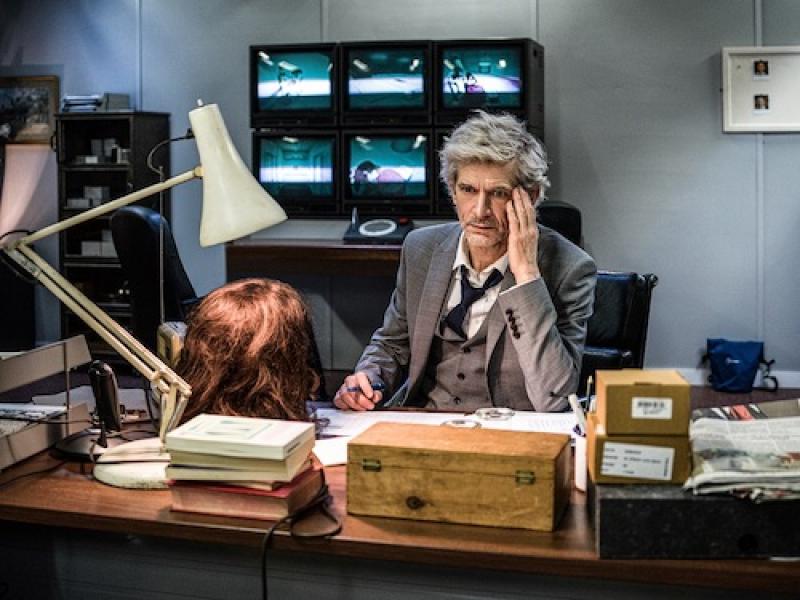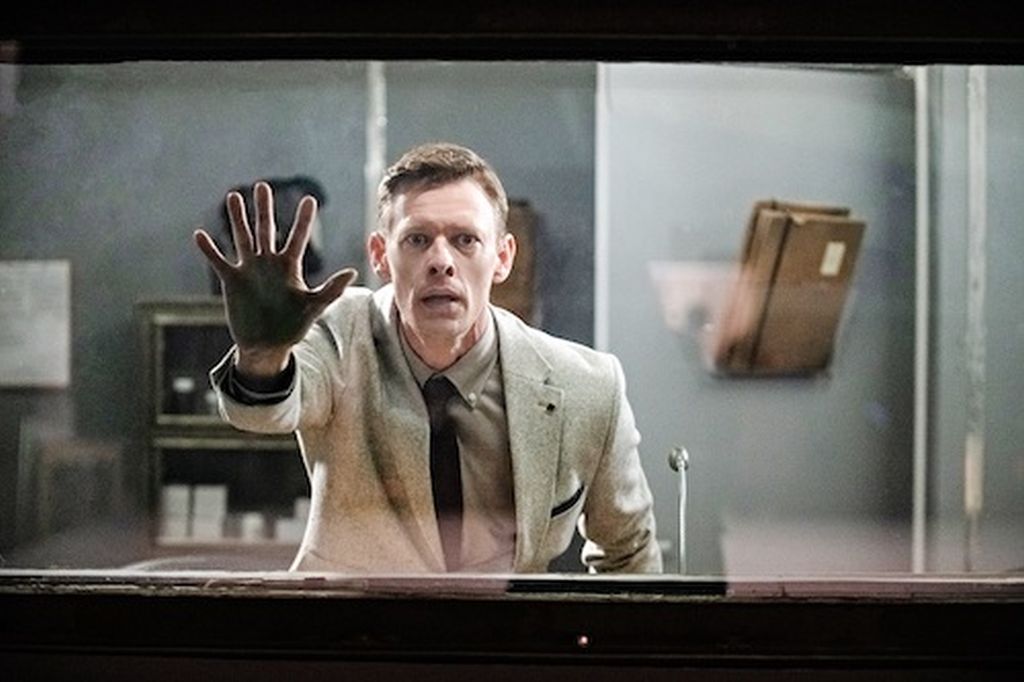Institute, BBC Four review – masculinity and memory in a nightmarish world of work | reviews, news & interviews
Institute, BBC Four review – masculinity and memory in a nightmarish world of work
Institute, BBC Four review – masculinity and memory in a nightmarish world of work
Physical theatre company Gecko's debut film is compelling and technically skilled

Missing the office? Or dreading the day you have to return? What’s your relationship to the people you work with and for, and how does it intersect with your personal life? Do your paymasters know you? Do they care about you? Are there days when the routine and the hierarchy of it all just feels like a spirit-crushing game?
All of those notions, and many others, drifted through the imagination when you entered the unsettling world of the Institute. This hour-long film for the BBC was created and directed by Amit Lahav, founder of the much-admired physical theatre company Gecko, and adapted from their 2014 stage work of the same name. Its setting is a stark building filled with white corridors and anonymous doorways. Buzzers, flashing lights and ringing telephones create a nerve-jangling tension.
The paraphernalia of the modern workplace – desks, lamps, filing cabinets, rubber plants – lent a dash of the mundane that was immediately undercut by frenetic, choreographed interactions and the troubling surveillance of two men, seemingly superiors, from another room via CCTV. Set on a table was a scale model of a grand building that was yet to be completed. The impression was of somewhere part-architectural practice, part-mental hospital, the experience both surreal and sickeningly familiar. It was like being trapped in some awful fevered anxiety dream, playing on a loop: the kind where you’ve been given a vitally important job to do, and have no idea how to do it – but faking it is somehow a matter of life and death. Institute wasn't an easy watch, and for all its intrigue, ingenuity and atmosphere, the feeling it left most powerfully with me was one of regret that I wasn’t watching it live, in the same room as the performers. On TV, the work just didn’t muster quite the same kinetic energy.
Institute wasn't an easy watch, and for all its intrigue, ingenuity and atmosphere, the feeling it left most powerfully with me was one of regret that I wasn’t watching it live, in the same room as the performers. On TV, the work just didn’t muster quite the same kinetic energy.
Still, there was plenty to ponder in the splintered narratives it thrust before our gaze. We watched two besuited men, Daniel (Chris Evans) and Martin (Lahav), scurrying the hallways, exchanging well-worn workday platitudes and shuffling papers. “You’ve got until Friday” booms an authoritative, disembodied voice, and suddenly we’re on a rooftop, listening to Daniel’s panicked breathing as he stands, distraught, on a ledge. The pair of supervisors, Louis (François Testory) and Karl (Ryen Perkins-Gangnes, pictured above) speak only in French and German, adding to the sense of dislocation, and they have their own troubles, Louis frail and eventually near-hysterical, sucking on an oxygen mask while Karl struggles to support him. And their interventions to train, or perhaps to cure, their sweating, anxious employees/patients lurched from cruel to tender. Daniel must march back and forth clutching a briefcase, always haunted by the terror of that rooftop flashback. Martin must relive, again and again, his final date with a woman he loved, who told him one night in a restaurant that it was over between them. In one particularly disturbing scene, he was manipulated through the re-enactment with giant wooden rods, a grotesque, helpless, man-sized puppet.
There were ideas, here, about masculinity, and the pathologising of human pain, as well as the potency of memories and the ways in which they make us who we are. An eye-catching moment saw an ashen-faced patriarch appear, wordlessly, before falling backwards out of sight – a father figure whose legacy was ambiguous, but whose loss seemed intimately, if elusively, connected with the anguish we were witnessing.
Dave Price’s music rippled between Michael Nymanish chugging to Middle Eastern cadences and vintage dance tunes, and the barefoot performers whirled and glided, as well as twitching, shuddering and gasping like hooked fish struggling at the end of a line. There were moments of almost child-like, joyous connection, and of tentative male bonding – the gentle embrace that turns into a blokeish punch to the upper arm. And desperate attempts to communicate through glass felt gut-punchingly topical. Overall, it was always compelling, and impressively skilful. I only wished I hadn’t been watching it onscreen.
rating
Share this article
The future of Arts Journalism
You can stop theartsdesk.com closing!
We urgently need financing to survive. Our fundraising drive has thus far raised £49,000 but we need to reach £100,000 or we will be forced to close. Please contribute here: https://gofund.me/c3f6033d
And if you can forward this information to anyone who might assist, we’d be grateful.

Subscribe to theartsdesk.com
Thank you for continuing to read our work on theartsdesk.com. For unlimited access to every article in its entirety, including our archive of more than 15,000 pieces, we're asking for £5 per month or £40 per year. We feel it's a very good deal, and hope you do too.
To take a subscription now simply click here.
And if you're looking for that extra gift for a friend or family member, why not treat them to a theartsdesk.com gift subscription?

Add comment